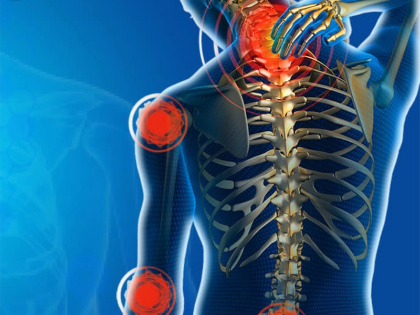The Role of Broccoli in Supporting Metabolic Health
1.One's nutritional profile for broccoli One cruciferous vegetable with a rather good nutritional value is broccoli. Rich in vitamins C, K, and A as well as folate and fibre, it also contains Overall health and well-being depend critically on these nutrients taken in concert. The great fibre content supports satiety and facilitates digestion, so helping to control appetite and improve weight loss. Broccoli also boasts several antioxidants, including sulforaphane, well-known for their anti-inflammatory action.

 3. Affect on Weight Control Metabolic health depends on a good weight, hence broccoli can be quite helpful in this regard. Low in calories yet packed in nutrients, broccoli can be a satisfying complement to meals without adding too many calories. Its fibre count aids in digestion as well as in fullness. By include broccoli in a balanced diet, one can help to regulate hunger and supply necessary nutrients, so promoting weight reduction or maintenance.
4. Antioxidant Characteristics and Inflammation Many metabolic diseases, including type 2 diabetes and obesity, are caused in part by chronic inflammation. Antioxidants abound in broccoli that fight oxidative stress and bodily inflammation. Particularly sulforaphane has been found to lower inflammatory indicators and might prevent metabolic syndrome. Broccoli's antioxidant qualities let you promote metabolic health and lower your risk of chronic diseases by including it into your diet.
3. Affect on Weight Control Metabolic health depends on a good weight, hence broccoli can be quite helpful in this regard. Low in calories yet packed in nutrients, broccoli can be a satisfying complement to meals without adding too many calories. Its fibre count aids in digestion as well as in fullness. By include broccoli in a balanced diet, one can help to regulate hunger and supply necessary nutrients, so promoting weight reduction or maintenance.
4. Antioxidant Characteristics and Inflammation Many metabolic diseases, including type 2 diabetes and obesity, are caused in part by chronic inflammation. Antioxidants abound in broccoli that fight oxidative stress and bodily inflammation. Particularly sulforaphane has been found to lower inflammatory indicators and might prevent metabolic syndrome. Broccoli's antioxidant qualities let you promote metabolic health and lower your risk of chronic diseases by including it into your diet.
 5. The Part Broccoli Plays in Heart Health Metabolic health is closely related to heart health, hence broccoli can help in this sense as well. Broccoli's nutrients—such as fibre and potassium—help to preserve appropriate blood pressure levels and cholesterol profiles. While potassium helps control salt levels, so supporting improved heart function, fibre helps lower LDL (bad) cholesterol. Including broccoli in a heart-healthy diet helps lower the risk of cardiovascular diseases, which are sometimes linked with metabolic problems.
6. Including Broccoli in Your Diet Including broccoli in your regular diet can be simple and quite tasty. Raw in salads, steamed as a side dish, or combined into smoothies for extra nutrients, it can be savoured Retaining its health advantages, roasting broccoli with olive oil and garlic improves its taste. Experimenting with several cooking techniques guarantees you to maximise this nutritious vegetable and helps to make your meals interesting.
5. The Part Broccoli Plays in Heart Health Metabolic health is closely related to heart health, hence broccoli can help in this sense as well. Broccoli's nutrients—such as fibre and potassium—help to preserve appropriate blood pressure levels and cholesterol profiles. While potassium helps control salt levels, so supporting improved heart function, fibre helps lower LDL (bad) cholesterol. Including broccoli in a heart-healthy diet helps lower the risk of cardiovascular diseases, which are sometimes linked with metabolic problems.
6. Including Broccoli in Your Diet Including broccoli in your regular diet can be simple and quite tasty. Raw in salads, steamed as a side dish, or combined into smoothies for extra nutrients, it can be savoured Retaining its health advantages, roasting broccoli with olive oil and garlic improves its taste. Experimenting with several cooking techniques guarantees you to maximise this nutritious vegetable and helps to make your meals interesting.
 7. Broccoli and Gastronomic Development Metabolic health depends on a good gut flora, so broccoli's fibre count can help to maintain gut health. Acting as a prebiotic, fibre feeds helpful gut bacteria and supports a balanced microbiome. Reduced inflammation, better weight control, and enhanced metabolism all depend on a varied and healthy gut flora. Including broccoli in your diet will help create a healthy gut environment—necessary for general metabolic health.
8. Review of Broccoli's Function in Metabolic Health A nutritional powerhouse, broccoli is greatly important for maintaining metabolic health. Its great nutrient profile, combined with its capacity to control blood sugar, help with weight control and fight inflammation, therefore enhancing the value of a good diet. Including broccoli in your meals can help you to maximise its many health advantages and support better metabolic activity. Including this adaptable veggie might help one be healthier generally.
7. Broccoli and Gastronomic Development Metabolic health depends on a good gut flora, so broccoli's fibre count can help to maintain gut health. Acting as a prebiotic, fibre feeds helpful gut bacteria and supports a balanced microbiome. Reduced inflammation, better weight control, and enhanced metabolism all depend on a varied and healthy gut flora. Including broccoli in your diet will help create a healthy gut environment—necessary for general metabolic health.
8. Review of Broccoli's Function in Metabolic Health A nutritional powerhouse, broccoli is greatly important for maintaining metabolic health. Its great nutrient profile, combined with its capacity to control blood sugar, help with weight control and fight inflammation, therefore enhancing the value of a good diet. Including broccoli in your meals can help you to maximise its many health advantages and support better metabolic activity. Including this adaptable veggie might help one be healthier generally.








